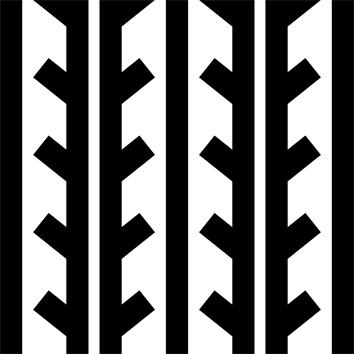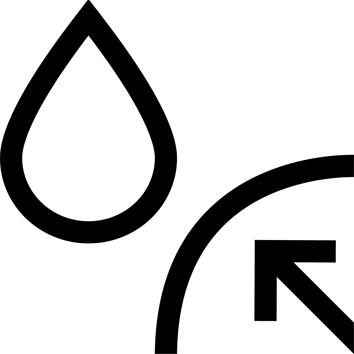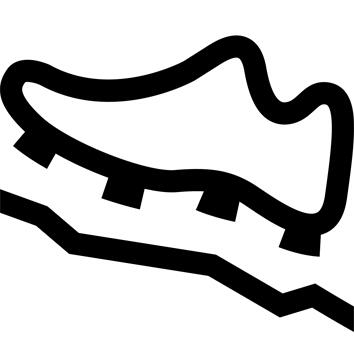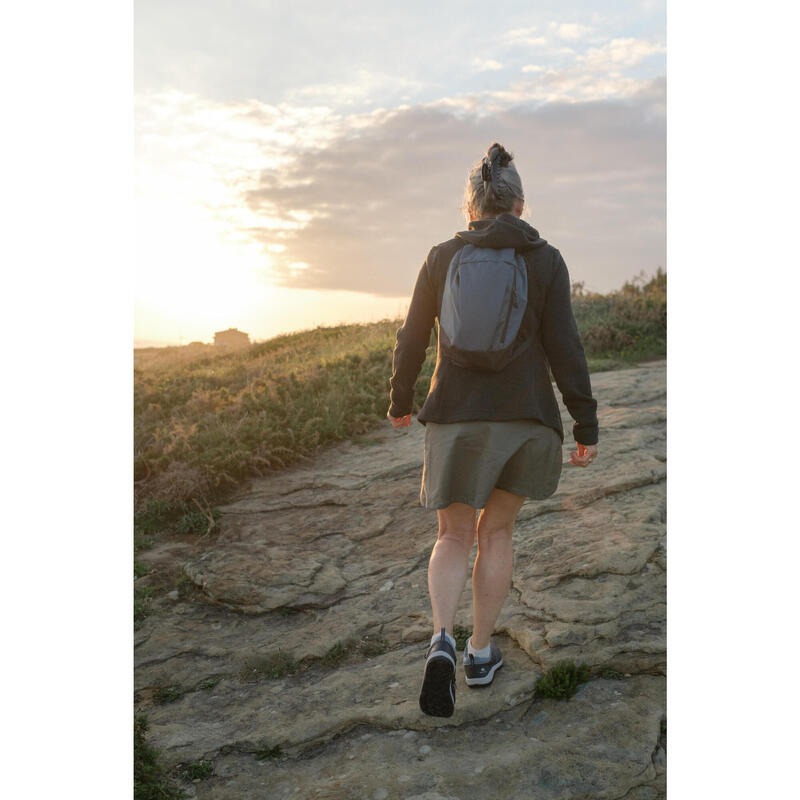Adhesive soles
Designed in our laboratories, we use a specific rubber formulation to optimize the grip and adherence of these soles. We systematically seek the best compromise between grip on greasy ground and grip on dry ground.
Designed for touring use
Our hiking boots are designed for use on footpaths. In fact, we select and test the sole and upper components of our shoes to ensure they are ideally suited to hiking on soft trails (such as dirt forest paths) or mineral trails (such as rocky coastal paths). Use on roads (asphalt) can accelerate wear and discomfort. They are not suitable for mountain hiking.
Waterproofing tests
Tested in the laboratory and in use, membrane-equipped footwear ensures optimum waterproofing and breathability. First immersed in water under air pressure, we check for the absence of bubbles on the shoe's surface. The shoes are then half-submerged and placed on a mechanical arm simulating walking, to check that the inside of the shoe remains perfectly dry.
Impermeability measurement
NH150 WP shoes are waterproof for 2 hours of hiking.
They have been tested for 2000 flexes in the laboratory. As soon as the shoes are dry, they regain their original waterproofness.
In the waterproofness test, we test three levels of waterproofness:
- 2000 flexes, approx. 2 hours' hiking
- 4000 flexes, approx. 4 hours' hiking
- 8000 flexes, approx. 8 hours' hiking
Resistance tests
Laboratory tests are also carried out to validate the following elements: eyelet and strap pull-off, gluing, toxicology, UV resistance, abrasion of sole and upper components, accelerated ageing.
These tests enable us to improve the quality of our products and prevent premature wear of our hiking boots.
Extend the life of your shoes
We recommend using a water-repellent spray several times a year: this will restore the original water repellency and combat external stains.
Which pair of socks goes with Quechua NH150 waterproof shoes?
These shoes offer a little breathability, but not enough to wick away all the moisture from your perspiration. We therefore advise you to choose Hike 100 Mid socks: they contain moisture-absorbing cotton and have a loop construction that wicks moisture away from your foot. They're also high enough to protect your ankle from the shoe. It's an excellent combination for limiting the appearance of blisters.










